Come see what we're up to!
Interested in engineering? Wonder how robots work? Would you like an opportunity to see whether or not you might like robotics? Join us for one of our STEM offerings!
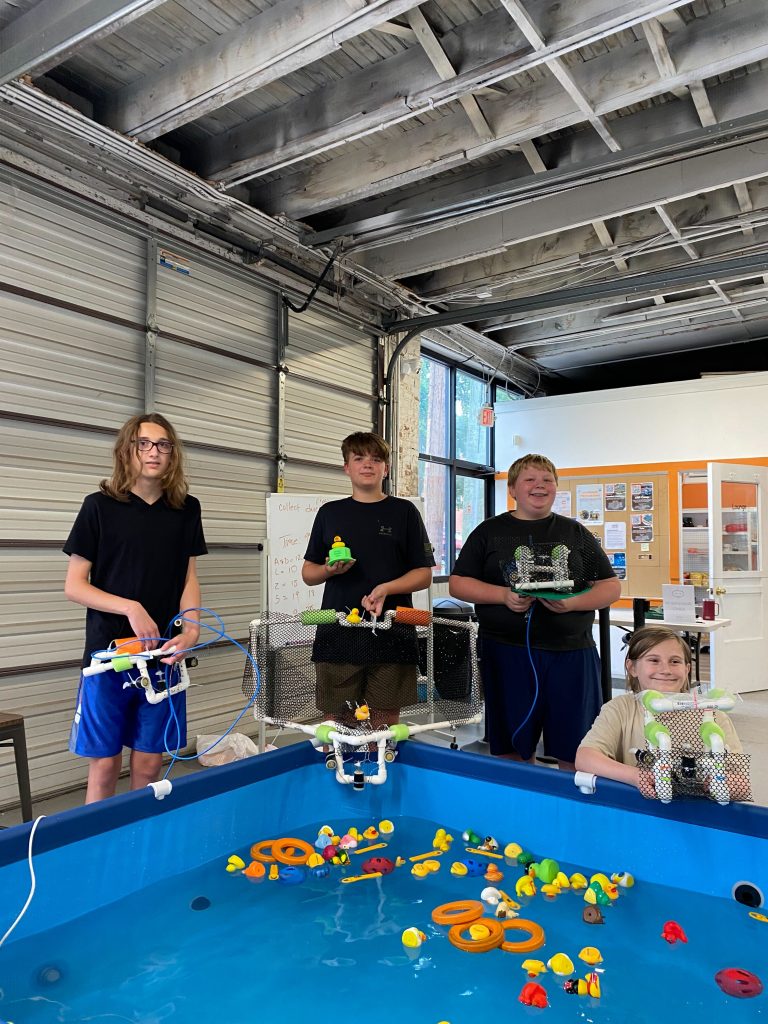
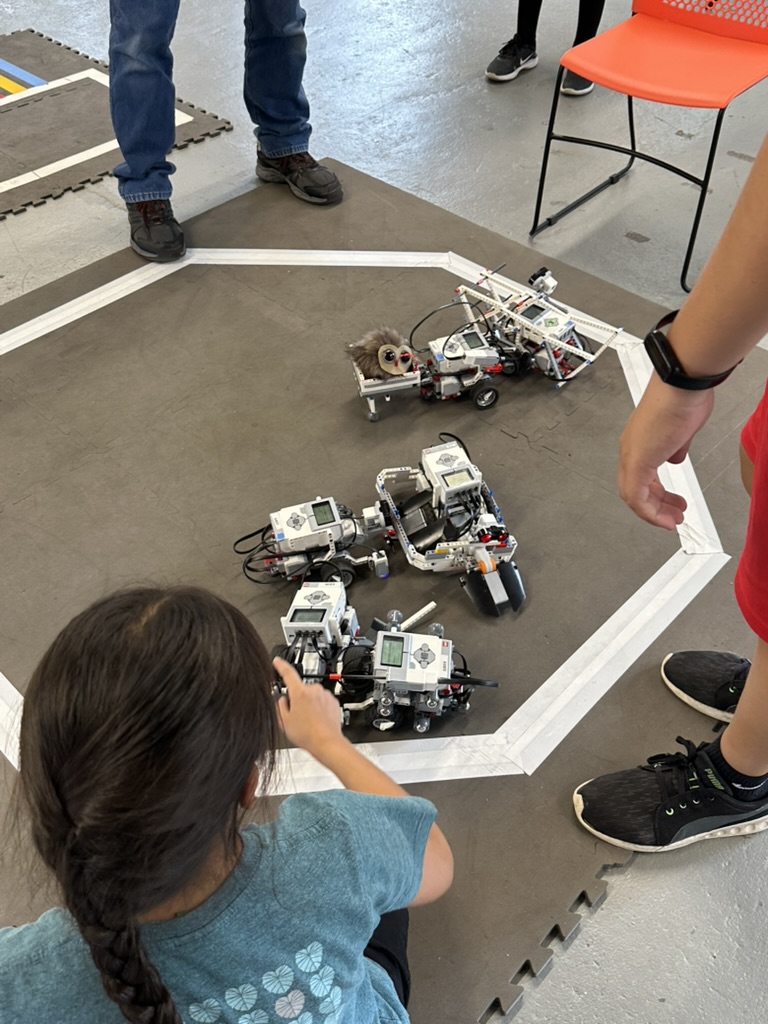
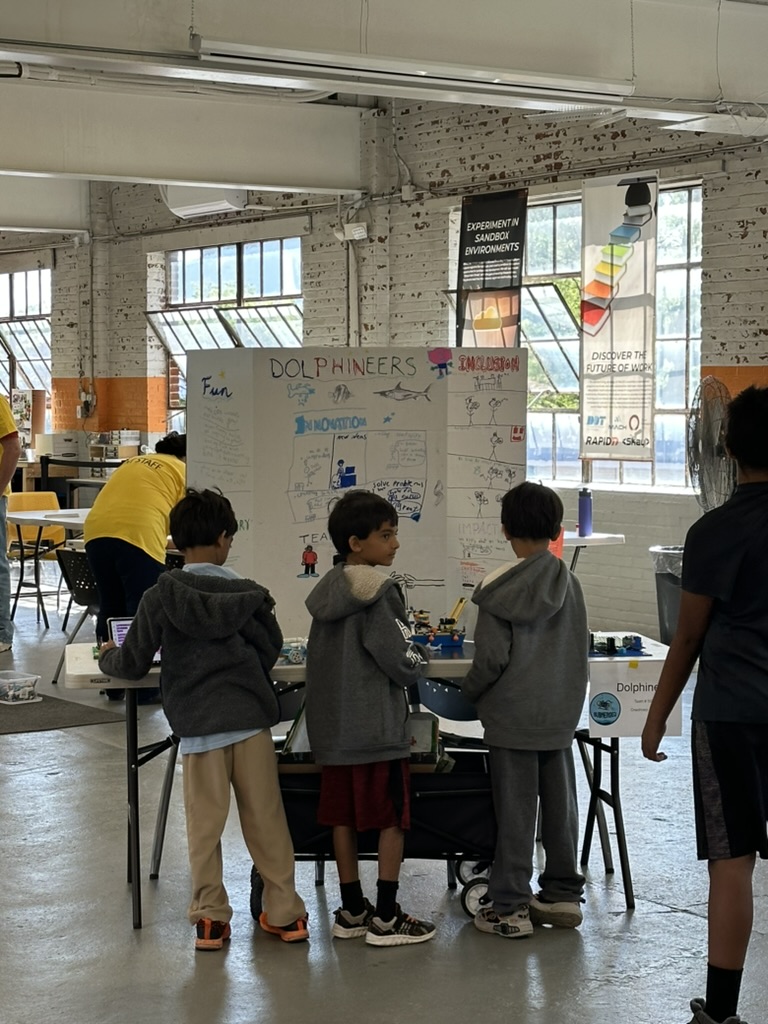
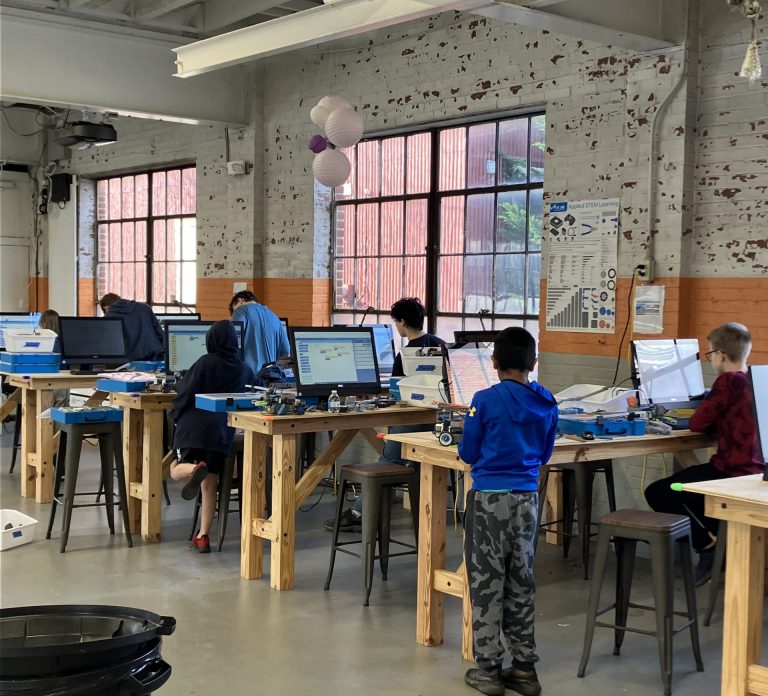
fall and spring semester CLASSES
During the school year, starting in grade 3, students are invited to join the fun and be introduced to the basics of robotics. The elementary sessions (grades 3-5) are 8-week courses and the middle school sessions (grades 6-8) are 10-week courses. Learning experiences will include basic electronics, engineering, understanding block code, introduction to Python programming, working with sensors, and autonomous programming (programming robots to perform a series of actions without human intervention).
Our small class sizes ensure that students are provided with individualized attention and can work at their own pace. As a course progresses, we may change the curriculum to meet the needs of the students. Generally, a new skill or concept will be introduced every week or two and build on what was previously learned. Our goal is to progress to a point where students, with guidance, can pursue their own interests and the instructors serve as facilitators to help students achieve their goals.
The Fall sessions will run October thru December/January, and the Spring session will run February thru April/May. Please refer to class schedules for any excluded dates. All classes will be held at the ARIC facility, located at 31 West Main Street, Rear, Westminster MD, 21157.
Elementary classes
101: Elementary Introduction to Robotics
First introduced in the Spring of 2025, this class used Makeblock MBot2 robots and Lego EV3 robots to teach students basic concepts in robotics. Small class sizes ensure that each child is provided with hands-on differentiated instruction to best meet their needs and help them to develop their interests in STEM. Thanks to a grant from the Society for Science, our Fall 2025 class will utilize Lego Essential Robotics kits.
Middle school/early high school classes
201: Introduction to Robotics using Vex IQ
In this hands-on course, students will explore the fundamentals of robotics using the VEX IQ system — a platform designed to spark creativity, critical thinking, and technical skills. Throughout the program, students will build a strong foundation for future robotics coursework by learning essential skills such as mechanical construction, sensor integration, block-based programming, and the engineering design process.
As the course progresses, students will apply what they have learned to design and develop original projects based on their own interests. These projects will be presented during the final class session, giving students the opportunity to showcase their creativity and problem-solving abilities.
Prerequisites: none
202: python programming with Vex
This 10-week course is designed for students who have completed Introduction to Robotics Using VEX IQ and are ready to take their coding skills to the next level. Building on the foundational concepts of block-based programming, students will begin transitioning into text-based coding using Python — one of the most widely used programming languages in robotics and technology today.
Using the VEX VR (Virtual Robotics) platform, students will work through a series of self-paced modules and coding challenges that gradually introduce Python concepts such as loops, conditionals, functions, and sensor integration. These challenges are designed to strengthen computational thinking and problem-solving skills in a virtual environment.
In addition to the virtual programming component, students will apply their skills to real-world robotics by collaborating in teams to complete a hands-on robotics challenge using VEX IQ robots. Working together, students will design, build, and program robots to tackle a final group mission — blending both their hardware and software knowledge in a fun, interactive setting.
Throughout the course, instructors provide guidance, technical support, and feedback to ensure each student progresses at their own pace while staying engaged and challenged. By the end of the program, students will have a strong introduction to Python coding and practical experience applying it to real-world robotics systems.
Prerequisites: Introduction to Robotics Using VEX IQ
203: Advanced VEX Robotics
In Advanced VEX Robotics, students will take their robotics skills to a new level by designing and building a competition-style robot. This course is ideal for students who have completed both Introduction to Robotics Using VEX IQ and Python Programming with VEX, and are ready for a more in-depth, challenging robotics experience.
Working with the VEX IQ system, students will explore advanced mechanical and electrical design by integrating additional building components and pneumatics. These additions will enable their robots to perform more complex tasks with greater precision.
On the programming side, students will expand their Python skills to create scripts that allow for more sophisticated control, automation, and responsiveness.
This is a hands-on, project-based course that emphasizes critical engineering practices like design iteration, testing and refinement, and collaborative problem-solving. Students will work in teams to develop and refine their robots to meet the requirements for a mock competition, applying real-world strategies used in competitive robotics environments.
By the end of the course, students will have a deepened understanding of robotic systems, engineering design, and advanced programming — all while building the confidence and teamwork skills that are essential in STEM fields.
Prerequisites: Introduction to Robotics Using VEX IQ and Python Programming with VE
Payment Options
We understand the need for low cost learning opportunities, and the robotics club is an exceptional way for your student to gain hands-on experience in a growing career field. Feel free to contact MAGIC for more information on monthly payment options. MAGIC does have a limited amount of scholarship opportunities for qualifying need-based students.
Thank you to our sponsors



